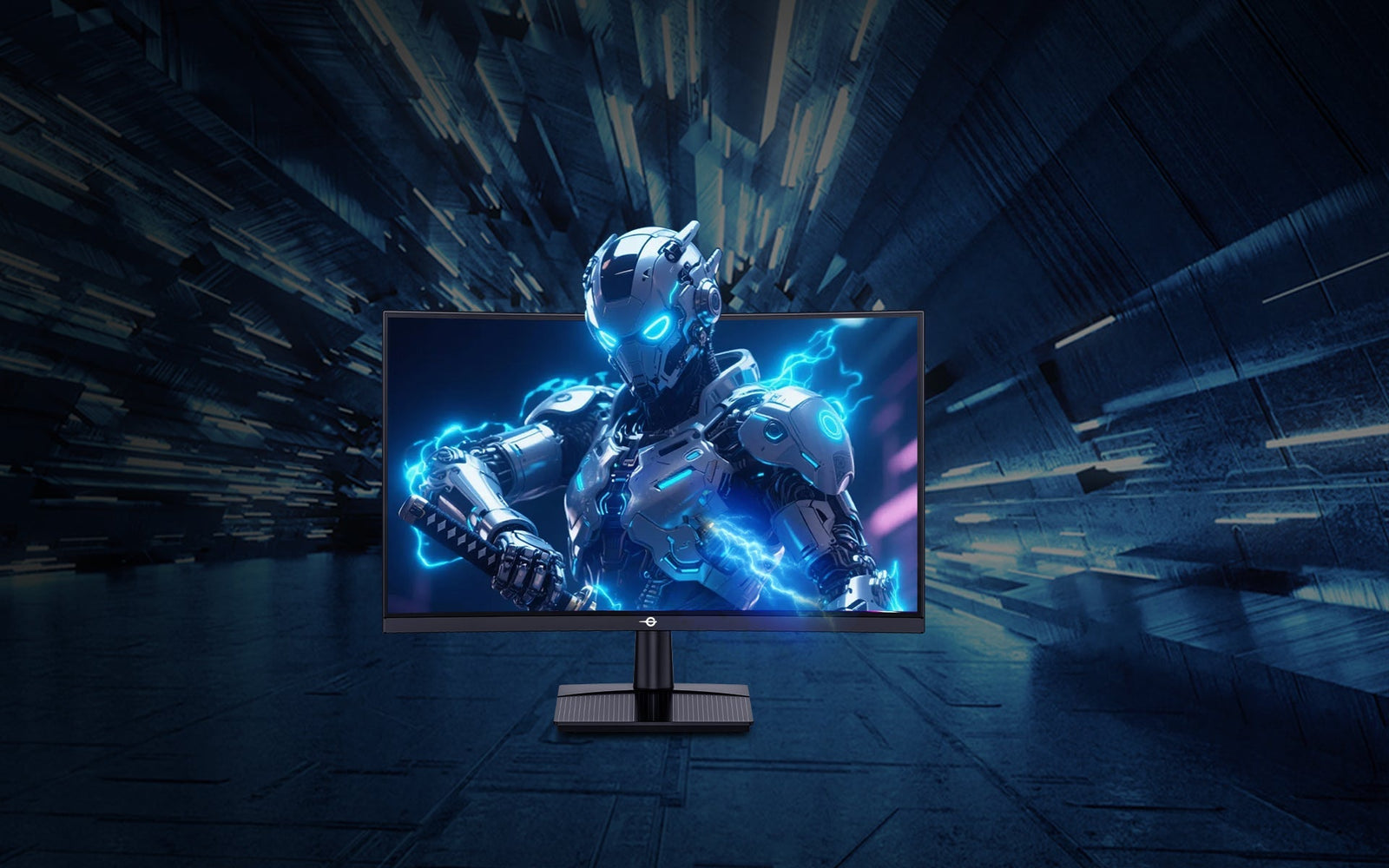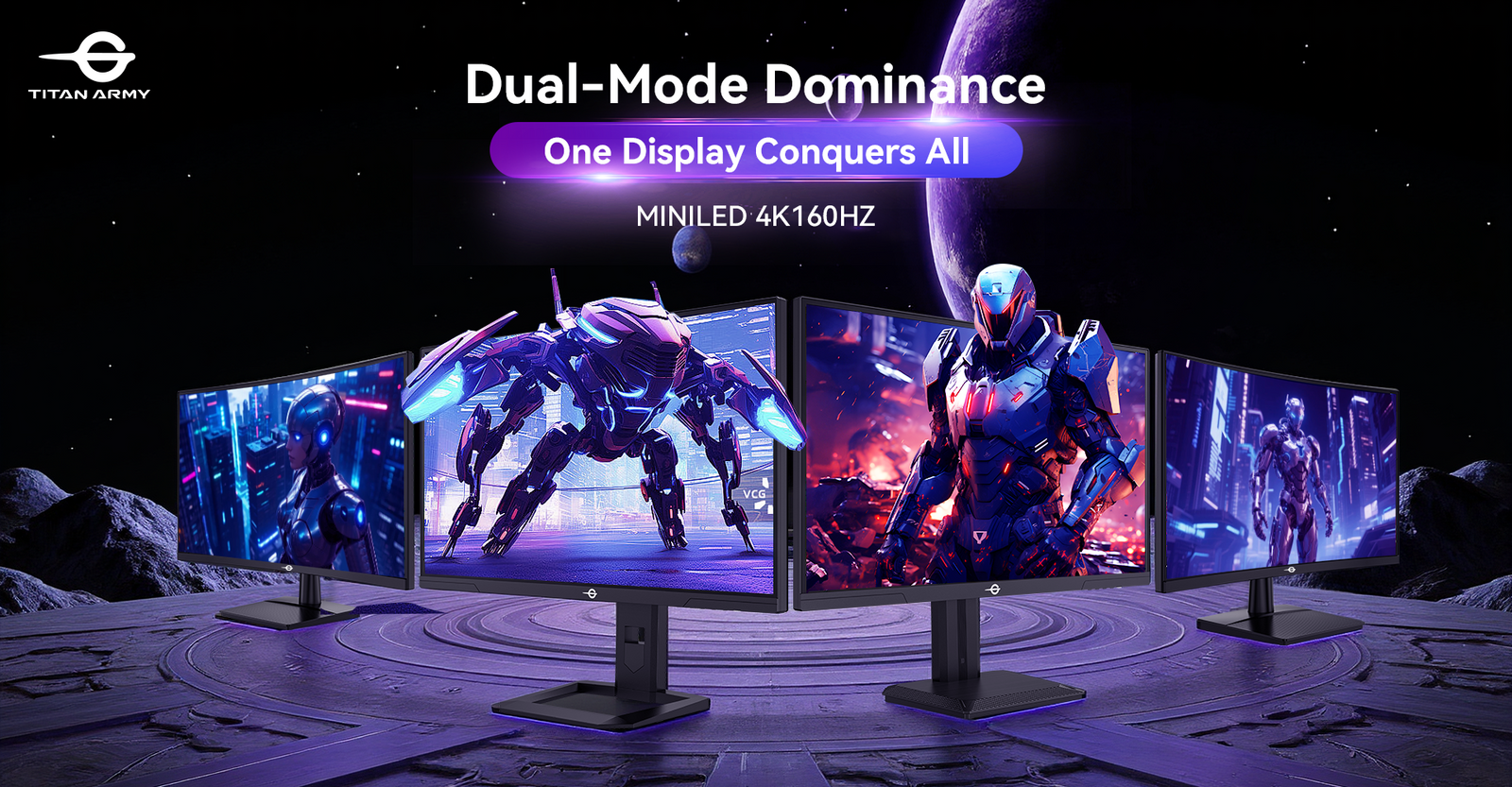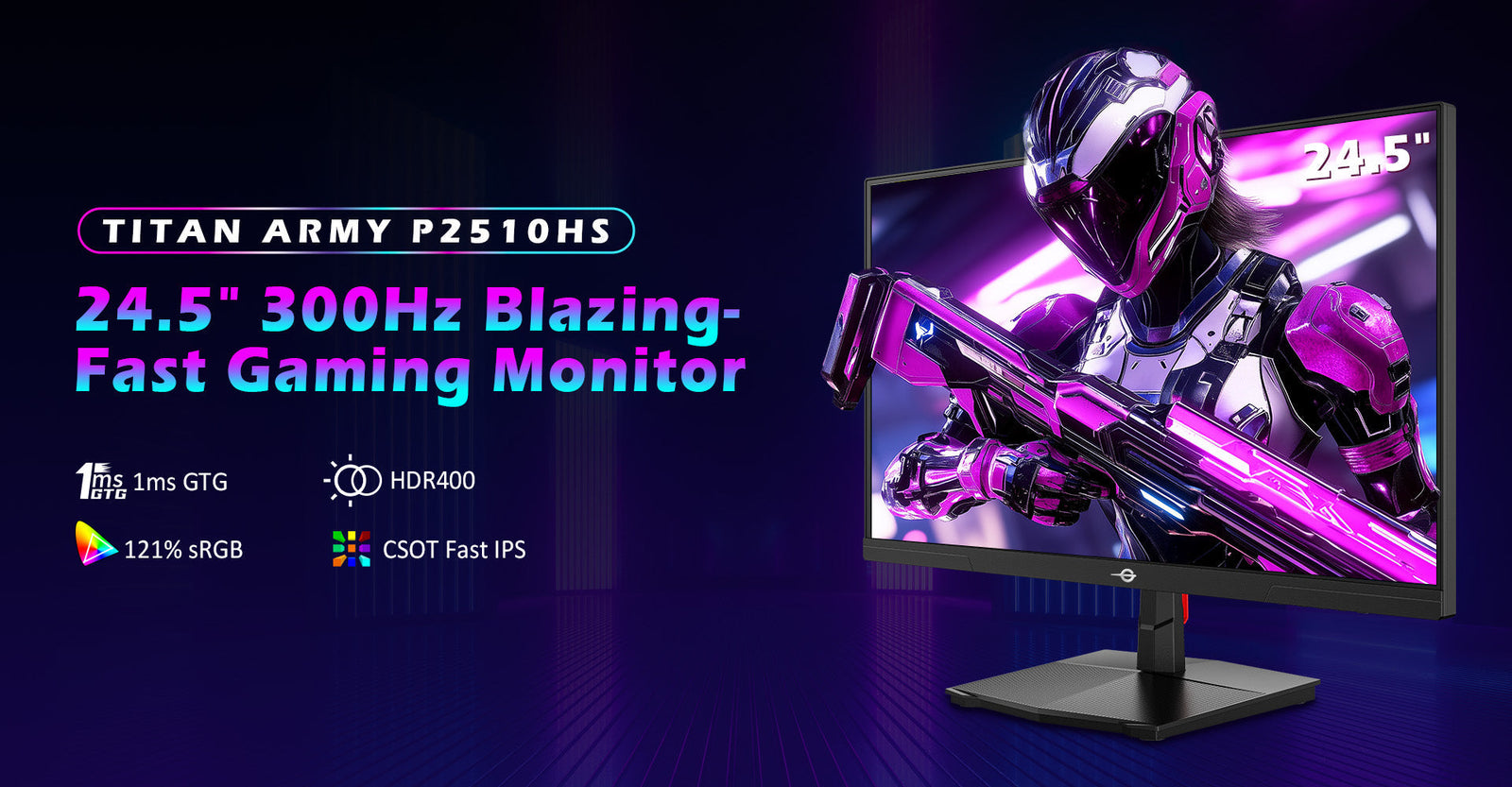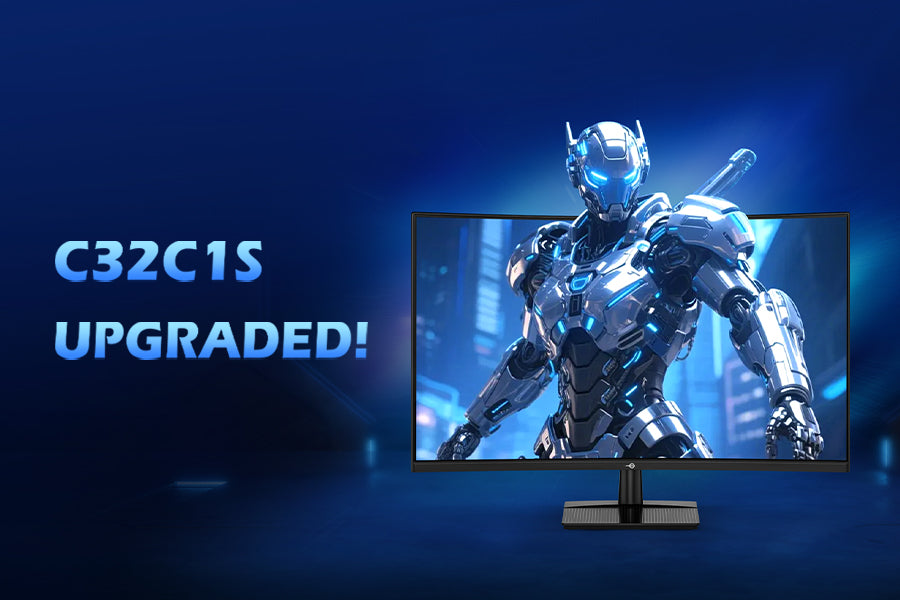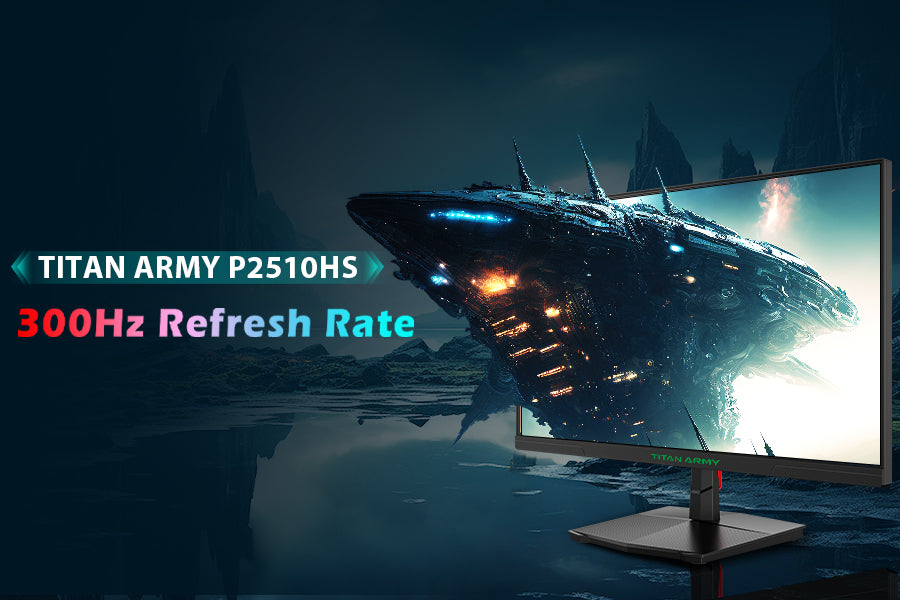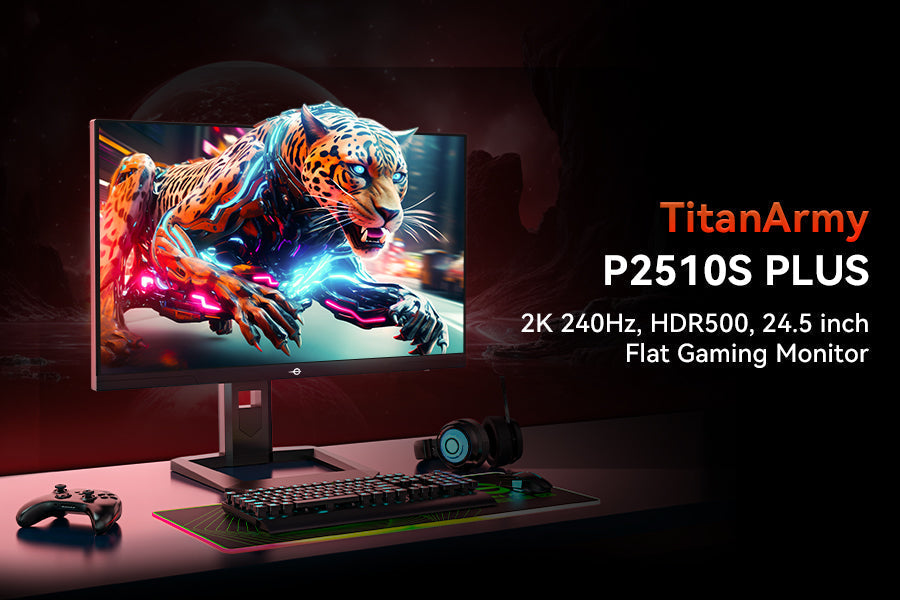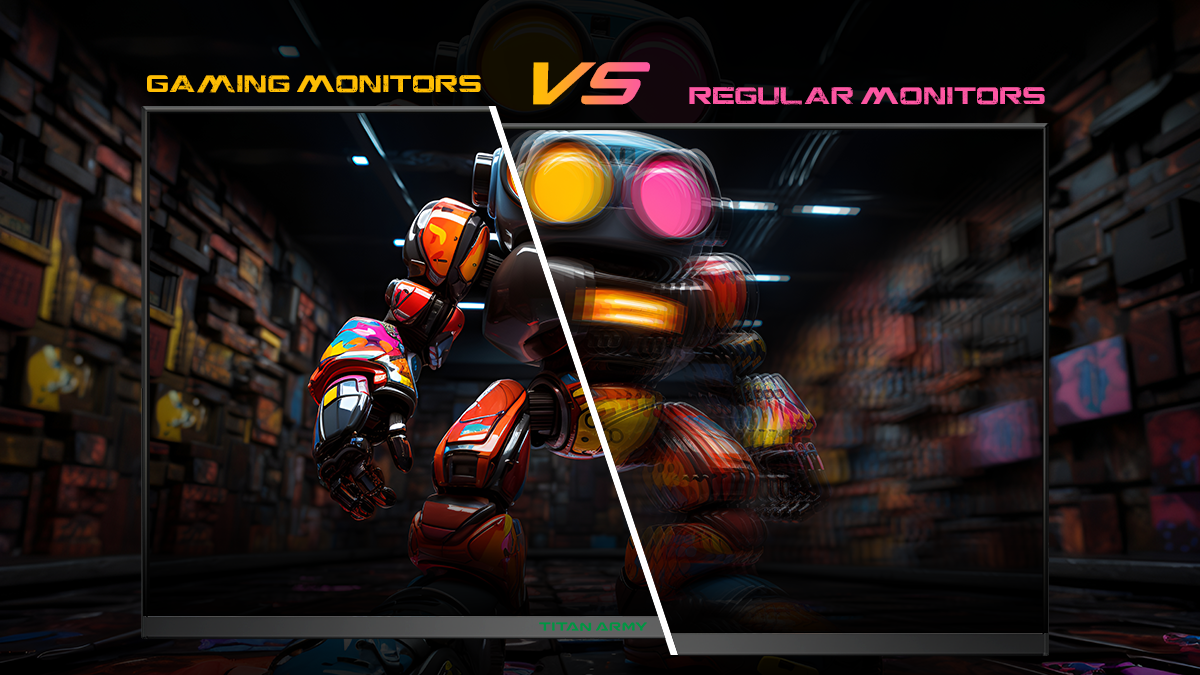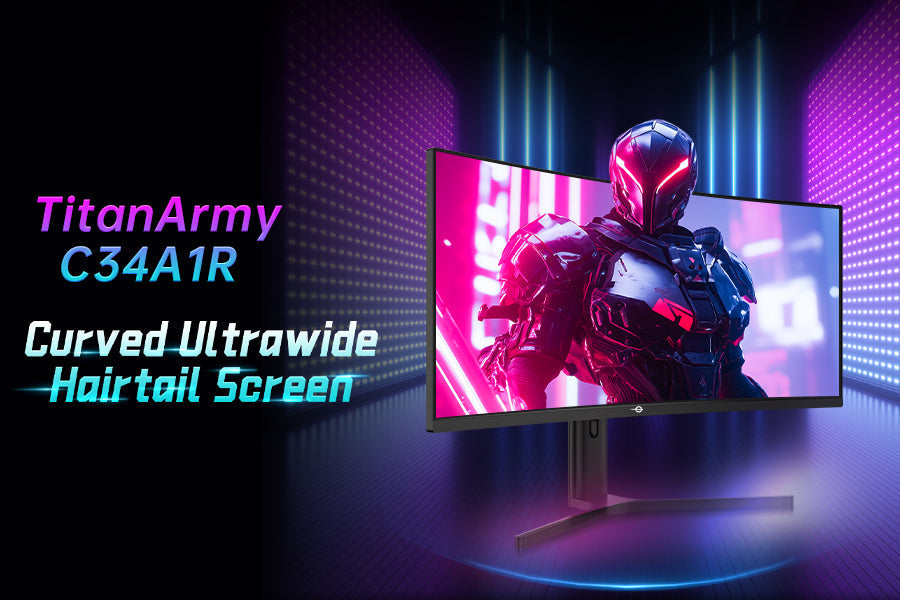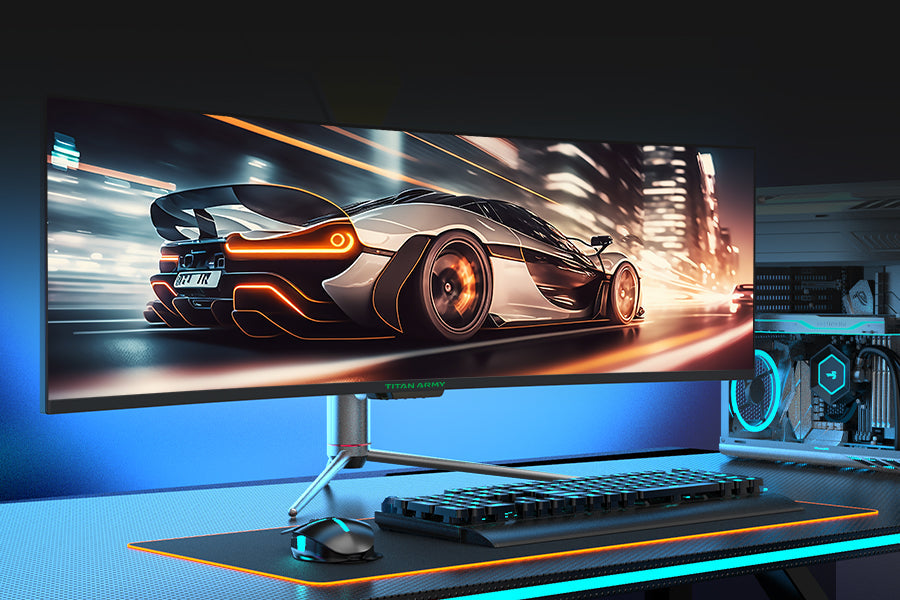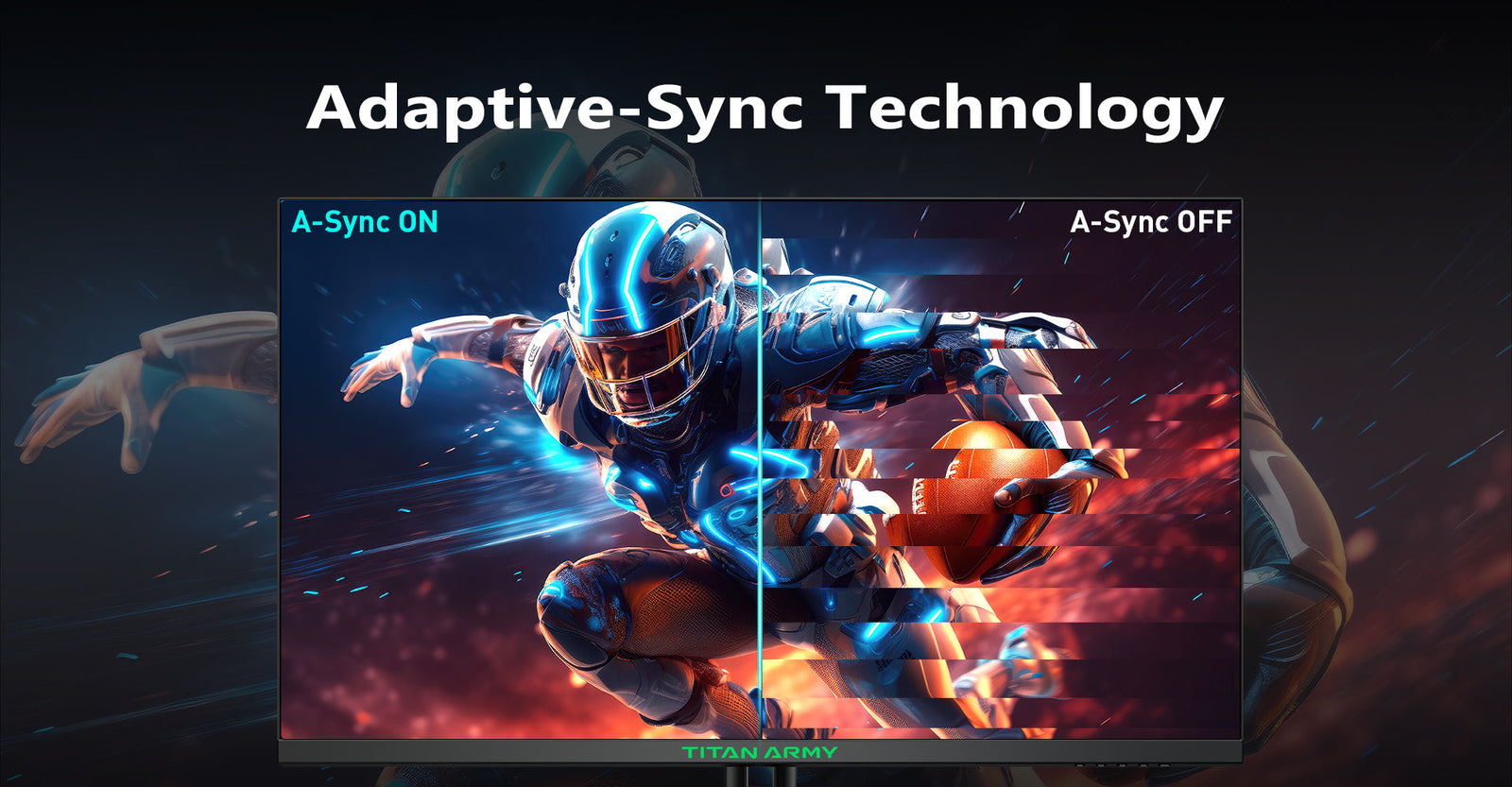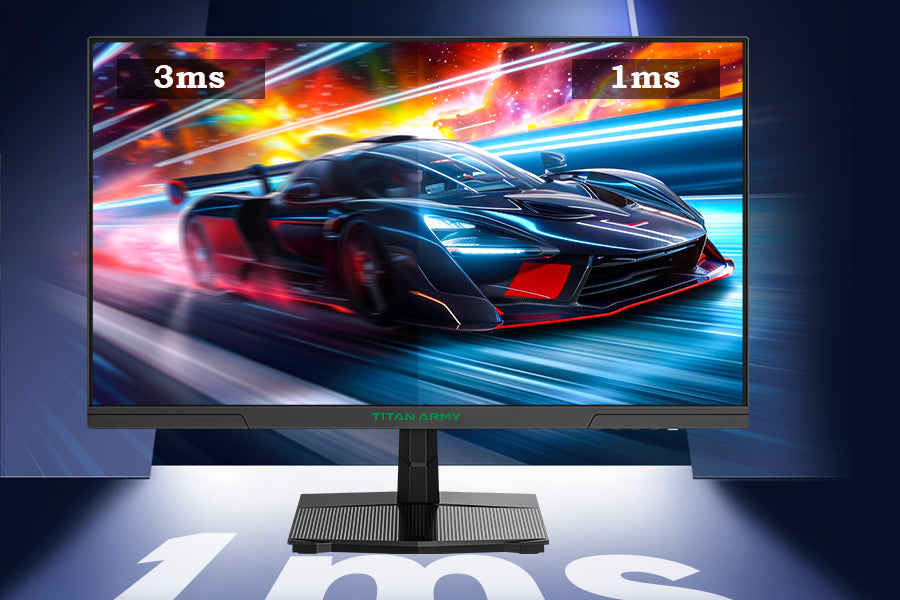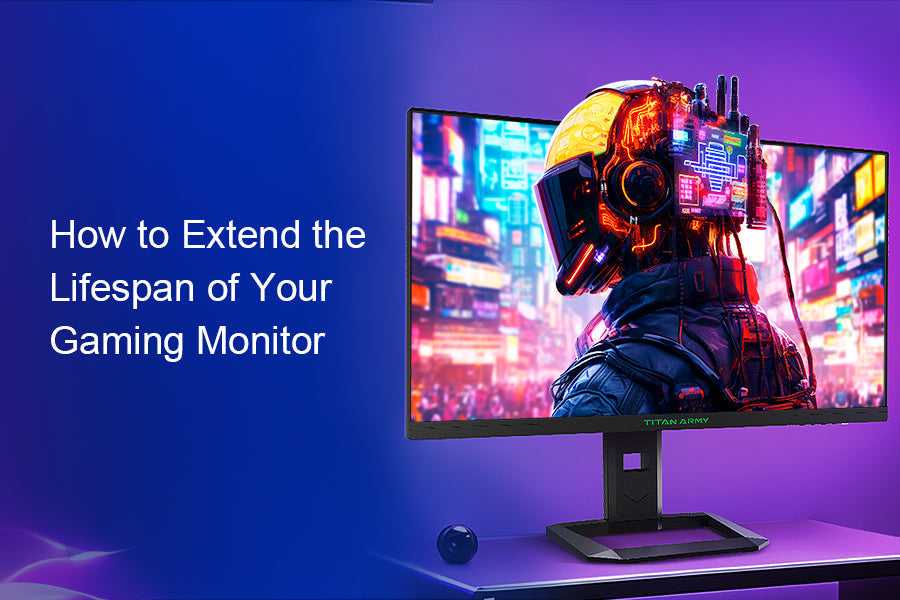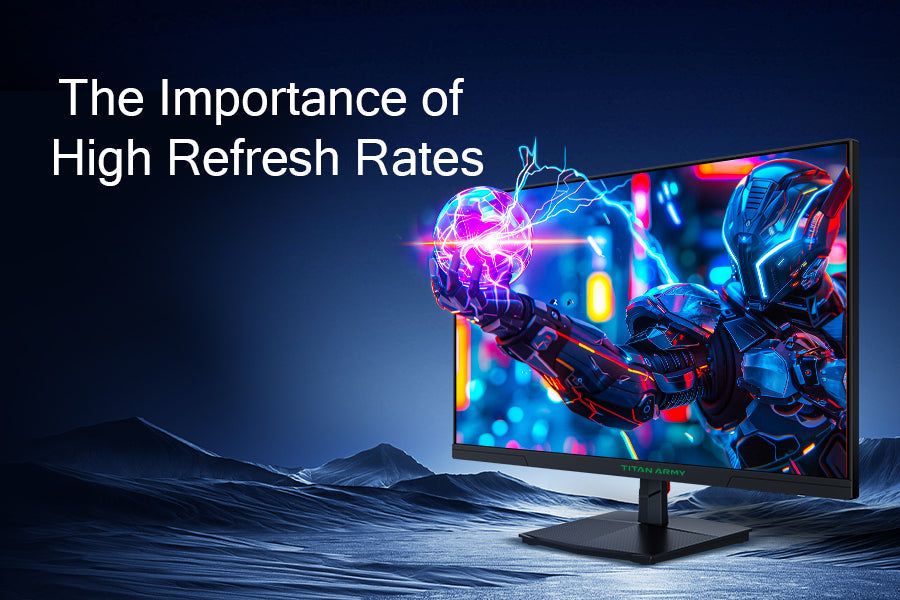Gaming monitors play a crucial role in shaping your gaming experience. It's not just about having a display in front of you; it's about immersing yourself in the gaming world with vibrant visuals and seamless performance. Selecting the perfect gaming monitor tailored to your specific needs and preferences is key to enhancing your overall gaming setup.
Basic Parameters of a Gaming Monitor
When diving into the realm of gaming monitors, understanding the fundamental parameters is essential.
1.Resolution
Resolution dictates the clarity and sharpness of the images on your screen. Ranging from 1080p to 4K, the higher the resolution, the sharper and more detailed the visuals on screen.
2.Refresh Rate
The refresh rate (60Hz, 144Hz, 165Hz, 180Hz) determines how smoothly the visuals move, with higher rates providing a more fluid gaming experience, especially for fast-paced games.
3.Response Time
Response time impacts how quickly pixels can change color, affecting the monitor's ability to keep up with fast-paced action. Lower response time results in less motion blur and ghosting.

4.Panel Types and Technologies
Different panel types, like TN, IPS, OLED, and QLED, offer unique benefits for gaming. TN panels are preferred for competitive gaming due to their fast response times, while IPS panels provide superior color accuracy and viewing angles for immersive gaming experiences. OLED and QLED technologies introduce advancements in display quality and contrast, offering alternatives to traditional panel types.
Considerations for Gaming Monitor Size and Design
The screen size of a gaming monitor can significantly impact your gaming setup and experience. Choosing between curved and flat monitors involves considering factors such as viewing angles and immersion level. Understanding the benefits and drawbacks of each design can help you select a monitor that best suits your gaming preferences.
1.Popular Gaming Monitor Sizes
In the current market, popular gaming monitor sizes range from 24 inches to 32 inches, with 27 inches being a common choice for many gamers. Larger sizes, such as 34 inches, are favored for ultra-wide gaming setups, providing a more immersive gaming experience,while smaller screens are often more budget-friendly. The selection of monitor size depends on personal preference, gaming space, and desired level of immersion.

2.Flat vs. Curved Screens: Pros and Cons
|
Aspect |
Flat Screens |
Curved Screens |
|
Pros |
Offers consistent image quality and precise viewing experience. |
Provides an immersive gaming experience. |
|
Ideal for tasks requiring accuracy, such as design work or competitive gaming. |
Minimizes glare and distortion, enhancing visual comfort. |
|
|
Generally more affordable than curved screens. |
Offers a cinematic feel, especially for certain game genres. |
|
|
Cons |
Limited in creating an immersive experience. |
Comes at a higher price point. |
|
May have slight distortion or reflections at the edges. |
Requires an adjustment period due to the curved display. |
|
|
Provides an affordable option for gamers. |
Limits mounting and placement options due to curvature. |
By considering these factors, gamers can make an informed choice between flat and curved screens based on their preferences for gaming experience, visual comfort, and budget.
Additional Features to Enhance Gaming Experience
Features like Adaptive Sync technology (G-Sync, FreeSync) help eliminate screen tearing and stuttering, enhancing gameplay smoothness. A top-tier gaming experience involves more than just size and resolution. Color performance is crucial for vivid and accurate visuals, ensuring that every hue pops on your screen. Brightness and contrast levels impact the depth of colors and details in dark and bright scenes. High Dynamic Range (HDR) support enhances color and contrast in games, providing a more vibrant visual experience.

Connection Options to Consider
The type of connections your gaming monitor supports can affect your overall gaming experience. HDMI and DisplayPort are common options, each offering unique advantages. Additionally, newer monitors may feature USB-C connectivity, providing convenient solutions for connecting various devices and peripherals.
Price and Budget Considerations
When choosing a gaming monitor, it's important to consider your budget. Assess your needs to decide if a higher-priced model is worth it or if a more budget-friendly option will meet your requirements effectively.
In conclusion, choosing the right gaming monitor involves a careful consideration of various factors, such as resolution, size, connectivity, and price, among others. By taking the time to evaluate your needs and preferences, you can select a gaming monitor that elevates your gaming experience to new heights.








